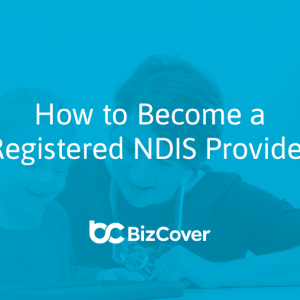A common assumption in some small business circles can be that small businesses are not attractive targets for cyber criminals due to their smaller size and (generally speaking) smaller amounts of cash, assets, revenue, and sensitive customer data that they hold.
Whether those assumptions are accurate or not, the reality is that businesses of all shapes and sizes – from sole traders and microbusinesses through to SMEs and large corporations – can be targeted by cybercriminals. And perhaps the most alarming aspect of cybercrime is that it may go undetected for extended periods before the victims discover that they have been targeted.
While cyber security risks and cyberattacks may not generally weigh heavy on the minds of small business owners toiling away in their business, all businesses may benefit from respecting the risks that cyber crimes pose to small business owners.
This is especially true given that cyber incidents are one of the top business risks for Australia in 2022. As noted by the Australian Cyber Security Centre’s Small Business Cyber Security Survey, the main barriers holding small business owners back from implementing good cyber security practices are:
- Lack of dedicated IT staff;
- Planning and responding;
- Complexity and self-efficacy; and
- Underestimating the risk.
How to see the cyber security warning signs of a pending cyber attack
As a general rule, instances of cyber crime can be difficult to both pre-empt and to identify. However, there are certain traits make some small businesses more attractive targets for cyber criminals. Let’s look at five warning signs that your business may be targeted by cyber criminals, and why each warning sign can make your small business an enticing target for cyber criminals.
1. You collect personal information about your customers
Small business owners may think they don’t have customer data that’s important enough to be stolen. Or they may think their business is too small to even be on the radar of cyber criminals. However, smaller organisations can actually be particularly appealing targets for cyber criminals due to the fact that they hold customer data like large corporations do, but they generally don’t have the regimented cyber security provisions of large corporations.
It’s likely that your small business collects and stores sensitive customer data, including first and last names, home addresses, and email addresses – all of which can make your small business an attractive target for a cyber attack.
2. Your business sells products online
Cybercriminals can target any business or organization that handles online financial transactions. Cyber criminals could target your small business, whether it is an online retailer or charity that accepts donations or payments online.
Cyber threats that target online shops, called “e-skimming”, are so valuable that financial information has been made available to cyber criminals. E-skimming is when cybercriminals hack into a store’s website and intercept financial transactions.
3. You have employees
When it comes to small businesses concerns around cyber security, often it can be your employees who can be your weak link. Does your small business have employees who use technology in your workplace as part of performing their job for your small business? If so, as the business owner it is up to you to ensure that they adhere to the cyber security protocols you have in place for your small business.
Your employees or volunteers can pose serious cyber risks to your business – without even being aware of it. Your employees or volunteers unwittingly may bring poor cyber safety practices into your business premises. Although your business might have well-planned and well-implemented cyber security protocols, human error may make them obsolete.
Small business owners may reduce this risk by including cyber security protocols in their employee onboarding process, while also considering business insurance such as Cyber Liability insurance.
4. Your business uses third-party vendors
Small businesses can be exposed to major supply chain risks. This is why small business owners who work with third party vendors might consider ways to reduce their exposure. Your business may have cybersecurity processes and systems in place. However, third-party vendors might not. This could make your business vulnerable to cyber threats.
5. You have a remote workforce
Changes in the way that workers collaborate were forced by the Covid pandemic. Some of your employees may now work remotely from home. This can be great for staff but it must also work for you as a way to protect your business’ cyber security.
Both employers and employees can benefit from allowing their employees to work remotely. It must work for you, the business owner, from a cyber security standpoint.
How are you managing your cyber risk?
Cybercrime is a constant threat. Now may be the right time for small-business owners to evaluate their risk management strategies for cyberattacks. This may include business insurance such as cyber insurance.
Cyber Liability insurance protects small business owners from claims and support your profitability in the event of a cyber attack. Costs associated with defending a cyber claim are also covered by Cyber Liability insurance, also known as cyber insurance. Examples of the types of risks Cyber Liability insurance can assist with are:
- inadvertent loss or release of customer personal information;
- cyber crime;
- cyber extortion/ransomware; and
- business interruption due to a cyber event.
BizCover helps small business owners throughout Australia to reduce their exposure to cyber crime through Cyber Liability insurance* made easy. At BizCover our small business customers enjoy our customer-first approach, which simplifies comparing Cyber Liability insurance quotes and purchasing business insurance online in minutes, not hours. Choose BizCover and get your Cyber Liability insurance sorted in minutes and get on with your day.


